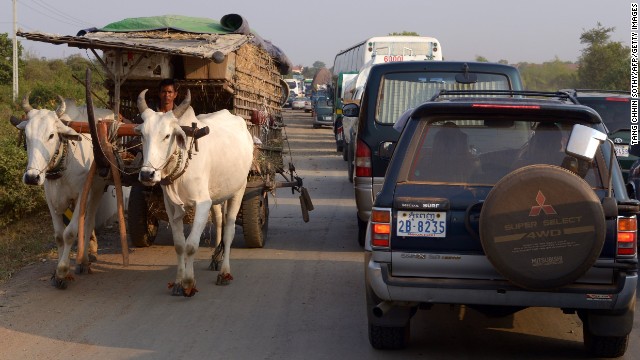
The Love in Action orphanage in Phnom Penh was raided on Friday by local officials and staff from Australian anti-trafficking group South East Asia Investigations into Social and Humanitarian Activities (SISHA), SISHA said.
A government spokesman confirmed to CNN that the orphanage "did not meet requirements" and was under investigation by the country's courts but gave no further details.
Twenty one children, including babies, were rescued but seven remain unaccounted for and the orphanage is now under investigation for human trafficking, child abuse, neglect and running an unregistered institution.
According to its website, the Christian orphanage was run by Ruth Golder, an Australian woman, and received most of its funding from donations.
A statement from SISHA said the woman has admitted to police that her orphanage was not registered and she had no legal authority to care for the children.
Her current whereabouts are not known but a spokesperson for SISHA said she had not been arrested or charged in the case.
The raid came after two groups of children recently fled from the orphanage and reported that they were beaten and neglected.
An official inspection found that "some children were visibly ill and not taken to a doctor, the facility was dirty, sewage was blocked and the living quarters were overcrowded," the statement from SISHA said. In interviews, children said they had been physically abused by staff at the orphanage.
"This marks the first time the Cambodian criminal justice and social services mechanisms have used due process to close an institution on short notice," the statement added.
Steve Morrish, managing director of SISHA, said that many orphanages in Cambodia were unregulated and had a financial incentive to increase the number of children they look after as it means they receive more funding from international donors.
"They call themselves orphanages but in many cases the children are not orphans. They have one or both parents, who are just very poor."
Recruiters are known to approach poor and rural families, saying they can offer their children education, food, clothing and a chance for a better life, he said.-Cable News Network (March 26, 2013)

No comments:
Post a Comment